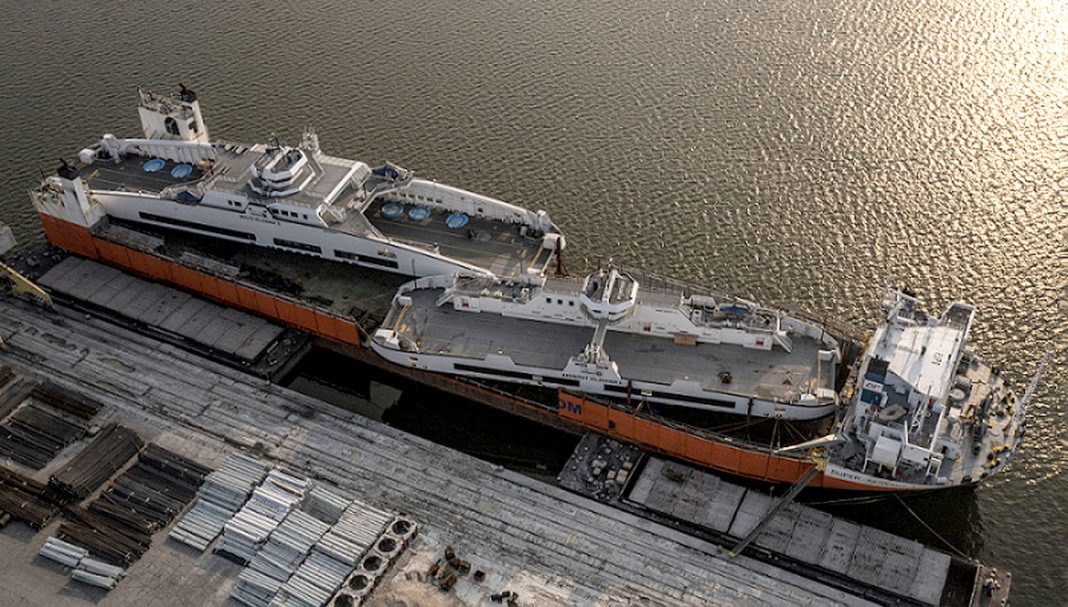The first, fully-electric road ferries to sail in North America are now on their way from Damen Shipyards Galati to Lake Ontario, Canada, to begin operations.
Ordered by the Ministry of Transportation, Ontario, Canada, Amherst Islander II and Wolfe Islander IV, 68m and 98m in length respectively, represent a new generation of zero-emission large ferries.
The vessels departed the yard on 26 August to be loaded on the semi-submersible transport vessel Super Servant 4 and will arrive in Lake Ontario in mid-September.
Both of the open-deck vessels are equipped to be fully-electric, but also have twin diesel generators installed to allow hybrid and full diesel propulsion for maximum redundancy.
Due to the harsh winters the ferries also feature 1B Ice class hulls and 1A Ice class azimuth thrusters, allowing them to be fully operational down to -25 degrees centigrade.
The delivery of the vessels marks the completion of the first of the two stages of the project. The second stage, which is well underway, involves an ambitious programme in which Damen is working with the Ontario government to install the facilities that will enable the vessels to use shore power supplied via integrated shore charging and mooring systems.
This will enable them to recharge their batteries while loading and unloading between the short crossings to and from the islands.
This involves not only the installation of the necessary transmission infrastructure at each of the four ferry docks, but also the complete rebuild of the docks to accommodate the new vessels plus the onshore electrical equipment.
The systems will also utilise load displacement and peak-shaving technology to achieve maximum efficiency and minimal costs.
The vessels themselves will use an innovative, fully automatic charging system developed by Wabtec Stemmann with features that include motion compensation to ensure a stable connection between the ship and the shore even in rough seas. Delivering 6MW of power, charging takes just ten minutes.
With the shoreside works due for completion in 2022, following extensive training for crews over the remainder of 2021, the ferries will commence operations in hybrid mode using the diesel generators to supply electricity to the motors.


